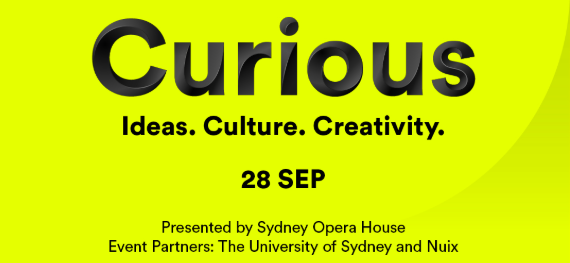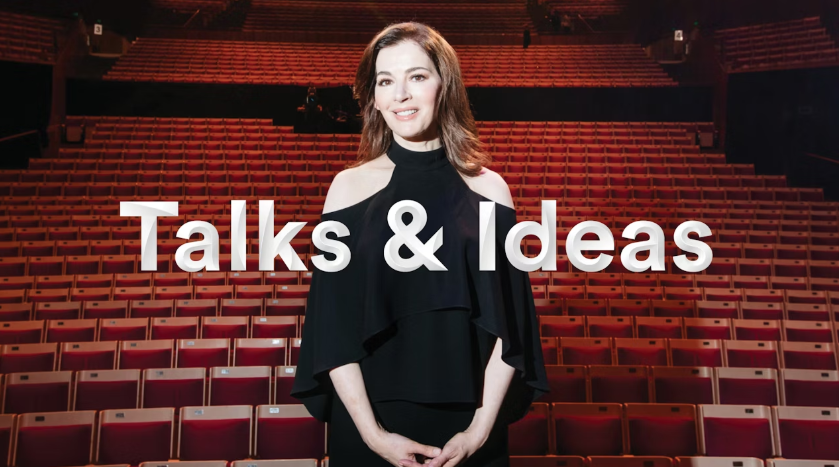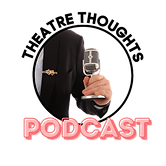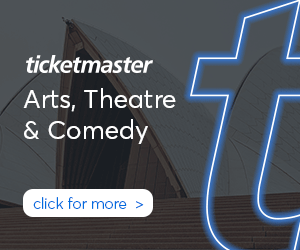
Written By
A curious curation of engaging and thought provoking talks about the ideas shaping headlines, sparking debate and changing the way we live
Is this AI’s Black Mirror Moment?
Panelists: Anna Broinowski, Micah Goldwater, Karl Kruszelnicki and Jonathan Kummerfeld with host Rae Johnston

The Curious day of talks with well-known and eminent speakers at The Sydney Opera House promised that we could “Dive into the ideas shaping headlines, sparking debate and changing the way we live”. The two topics I attended are both constantly in the headlines, and definitely have the potential to change the way we live. The speed with which AI, or more precisely generative and predictive artificial intelligence tools, has flooded the zone has been matched only by the speed with which the Trump administration has taken the USA down the path of authoritarianism.
There seems to be a dependency loop between these two phenomena. Could the MAGA movement, the January 6 insurrection in the US and the manosphere have come into being and flourished without the pernicious echo chamber of social media, fuelled by lies and disinformation spread by AI bots and amplified by professional, state and amateur influencers alike?
Listening to the thinkers on the panels, people who really know what they are talking about, it occurred to me that AI and fascism have much in common:
- They provide “easy answers” and this relieves the anxiety of an uncertain and unpredictable world, of lack of social support and connection, and lack of personal resources, including financial resources as well as knowledge and self-esteem.
- They overvalue authority over self-empowerment, which can be gained through critical thinking.
- They’re based on magical thinking, the belief that a charismatic leader, who talks like they know everything and tells you what you want to hear, even if it is lies or hallucinations, will solve all your problems.
- They provide the powerless with a connection to power, to reduce a sense of weakness or satisfy a desire for power.
- They require giving up autonomy to gain a sense of security or freedom that is illusory. To paraphrase Goethe, ‘no people are more hopelessly enslaved than those who believe they are free without being so’.
Throughout the AI session, documentary filmmaker and author Anna Broinowski spoke passionately and insightfully about the impact on creativity and the arts; she also told of some positive examples where filmmakers are using AI tools to enhance their storytelling, not to ‘trick’ viewers but as part of their creative toolkit. Dr Karl spoke of his own deepfake case study, and his ability to relate make him critically alive to the risks posed by unmitigated and uncontrolled AI use. The academics were naturally more measured and analytical but they too sounded notes of caution against thoughtless trust in AI technology.
Everyone agreed that critical thinking is our last line of defence, but this doesn’t come naturally; we need to learn and be taught how to think critically. A tall order when arts departments (history, psychology, literature, sociology etc) are being ravaged in universities, and arts students are paying double or triple the fees that STEM students are paying. As Micah Goldwater acerbically put it: “You can’t think critically if you don’t know anything”.
We need to learn and be taught how to think critically.
The speakers were at pains to stress that AI is not actually ‘intelligent’, it just ‘predicts’ and ‘copies’. Whether it’s a response to a question or creating an image; we are mistaking confidence for intelligence, like believing the loudest most convincing liar at the pub.
“You can’t think critically if you don’t know anything”
The scientists themselves have been the most surprised of all at the speed of take-up and the tsunami of AI hype. Would we trust a bridge built by traditional engineers who build bridges that stay up, or one built by software engineers whose motto is to move fast and break things? It’s just technology – and we should be in control. We’re falling for the myth of the ‘shiny new thing’ being special and different. Dr Karl made the point that all drugs are poison, and what matters is the dose. The dose of AI therefore should be controlled and regulated.
Probably the most salient point made about AI is that it is trained to make us happy, not tell us the truth. AI reflects us back to ourselves: it feels so real because it is optimised for engagement, and this is irresistible human catnip, a tactic also used by populist leaders to suck people in. We need to stop, shake ourselves, and take back control.
Is it Fascism Yet?
Panelists: M Gessen and Jason Stanley with host Anna Funder

In the second session, the two speakers discussing whether the US is a fascist state yet, pretty well gave it a resounding ‘YES’. And they should know: M Gessen fled Putin’s Russia, and Jason Stanley, professor and fascism expert, has departed Yale University for Canada, along with other academics who could not withstand the sense of threat. They both stressed the importance of taking note of history, and of being able to check off all the hallmarks of burgeoning fascism. “I look at my country and I see a stranger.”
As to the hallmarks, they cite the crony capitalism, the targeting of migrants, the culture wars recalling Hitler’s war on ‘degenerate’ art, the obsession with racial and gender purity, the capture of the civil service and judiciary, the attacks on education and the universities and the erasure of history. Fascists do this all openly and blatantly, there is nothing secret or mask about it.
They highlighted how corporations are using the spurious fig leaf of ‘financial concerns’ as they knuckle under the administration’s fascist pressures. The Washington Post is a miniscule portion of Bezos’s empire, yet he gladly sacrificed it to keep Trump’s fickle approval. CBS keeps reiterating the lame excuse, in the face of all other evidence, that the cancellation of Stephen Colbert was done for purely financial reasons.
“I look at my country and I see a stranger.”
Stanley ominously pointed out that Australia is uniquely vulnerable to the fascist movement. With the baggage of the White Australia policy not too far behind us, a resurgent interest in One Nation and an emboldened far right wing of the Coalition enabled by the Murdoch papers and Sky News (in some cities and regions of Australia this is the ONLY mainstream media available), we should not be complacent. The familiar mantras are used here as well, to divide and conquer: think of the No campaign in the Voice Referendum. Fascism gets people to vote against their own interests, by obscuring economic issues with culture wars, to distract and deflect the progressives. The liberal left’s project is more closely aligned to the economic interests of the working classes, but they fall for the bait every time.
Fascism gets people to vote against their own interests, by obscuring economic issues with culture wars, to distract and deflect the progressives.
No-one on this panel thought that our mainstream media is up to the task of combatting the rise of fascism. It is just not designed to rebel: their mantra is ‘we just report what’s out there’. Never mind that they are also scrounging for resources and seeing traditional newsrooms decimated by their corporate owners, their capacity for denial is evident in their treatment of the current crises as ‘just normal politics’.
So in a nutshell, we need to be alert AND alarmed.
But to end on a lighter note, Patricia Marx in the September 15 edition of The New Yorker recounts a story from a marketing executive trying to get ChatGPT to create a graph from some data. After the executive turned down a couple of efforts, ChatGPT declared “This is something you can easily do yourself.”
Sydney Opera House hold regular talks throughout the year, to find out more visit: https://www.sydneyoperahouse.com/talks-and-ideas






